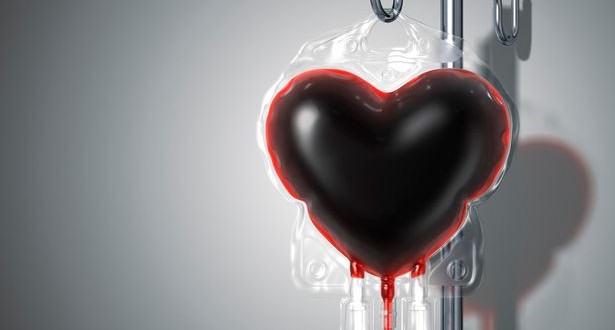Scientists at the University of British Columbia are closer than ever to finding a way to reduce blood shortages and eliminate the risks of mismatched transfusions by making all blood compatible – no matter what the type.
Currently, only donors with the O-negative blood type can transfuse their blood to anyone in need, which is why the blood type is always in high demand and quickly depleted in blood bank supplies.
O-negative is the blood type that medical professionals use when there is an emergency and no time to test a patient’s blood.
However, a new enzyme created by the UBC team could eventually make blood more readily available by converting all donated blood into a type similar to O-negative. The enzyme removes type-determining sugars by 170-fold – it makes the blood antigen-neutral and significantly more compatible to be accepted by those in need of blood regardless of their blood type.
“We produced a mutant enzyme that is very efficient at cutting off the sugars in A and B blood, and is much more proficient at removing the subtypes of the A-antigen that the parent enzyme struggles with,” said David Kwan, the lead author of the study and a postdoctoral fellow in the Department of Chemistry, in a statement.
With current transfusion methods, a patient that receives an incompatible blood type could lead to a serious adverse reaction or even death. The immune system would attack and kill the transfused blood cells, and this can lead to symptoms such as kidney failure and blood clots.
While the research is promising, a lot more work needs to be done before clinical trials can begin. Researchers need to find a way to remove all of the antigens as the immune system is highly sensitive to even a small amount of foreign residual antigens.
“The concept is not new but until now we needed so much of the enzyme to make it work that it was impractical,” says Steve Withers, a professor in the Department of Chemistry. “Now I’m confident that we can take this a whole lot further.”
Blood types found Canada’s population
A-postiive: 36%
A-negative: 6%
B-positive: 7.6%
B-negative: 1.4%
AB-positive: 2.5%
AB-negative: 0.5%
O-positive: 39%
O-negative: 7%
Agencies/Canadajournal

 Canada Journal – News of the World Articles and videos to bring you the biggest Canadian news stories from across the country every day
Canada Journal – News of the World Articles and videos to bring you the biggest Canadian news stories from across the country every day

